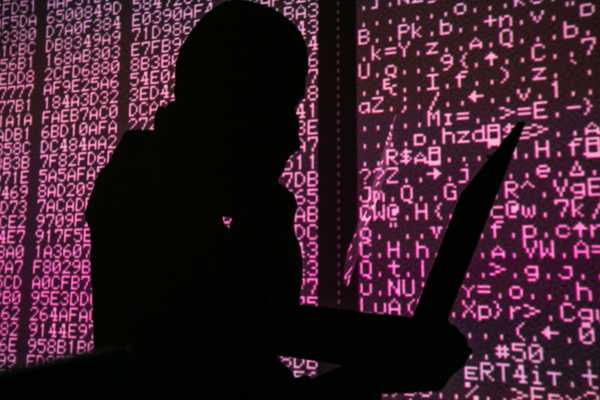
This story is part of a group of stories called

Uncovering and explaining how our digital world is changing — and changing us.
On August 4, a 21-year-old man opened fire at an El Paso, Texas, Walmart, killing 22 people and injuring at least two dozen others. The incident appears to have an eerie similarity with shootings at a San Diego synagogue in April and two mosques in Christchurch, New Zealand, in March: The shooters were spending time in the same dark corner of the internet, specifically, a site called 8chan — a notoriously difficult-to-police forum. But the El Paso shooting may finally change that.
8chan is an online message board that since its 2013 launch has become the home of some of the most vitriolic content on the internet. It characterizes itself as the “darkest reaches” of the online world in its tagline and has fostered a reputation as a nearly lawless space for free speech — however hateful or dangerous it may be — to flourish.
The platform has come under extra scrutiny in recent months because of the role it appears to have played in some mass shootings in the United States and abroad. Both the San Diego and New Zealand shooters appear to have been radicalized at least in part on 8chan, and when they perpetrated their deadly acts, they both posted their manifestos to the site explaining their racist reasoning. The El Paso Walmart shooter also allegedly posted his hateful, anti-immigrant manifesto on 8chan before his crime.
After this weekend’s tragedy, Cloudflare, one of the companies that protect websites from cyberattacks, removed its protection for 8chan.
“I’ve only been lurking for a year and a half, yet what I’ve learned here is priceless. It’s been an honor,” the shooter at the Chabad of Poway synagogue wrote in a post on 8chan with links to his manifesto and Facebook page before his attack.
8chan, and especially its “politically incorrect” /pol/ board, has become a home of white nationalists, neo-Nazis, and alt-right ideologies online. The tone of the conversation there is one of dark and disturbing humor where hateful rhetoric about Jewish people, Muslims, women, and other groups abounds. Much of the chatter is passed off as half-serious and “for the lulz.” But its real-world consequences are hardly a joke.
“8chan is, in many ways, acting like a digital hate group,” Oren Segal, director of the Anti-Defamation League’s Center on Extremism, told Recode earlier this year.
Cloudflare had previously resisted calls to remove its protections for 8chan but reversed course over the weekend. “They have proven themselves to be lawless and that lawlessness has caused multiple tragic deaths,” CEO Matthew Prince wrote in a blog post explaining the decision on Sunday.
The website’s administrators have called it “a bump in the road.”
8chan is an offshoot of 4chan, another troubled platform
8chan was launched in 2013 by Fredrick Brennan, but it didn’t really take off until the emergence of Gamergate in 2014, a widespread harassment campaign against women and progressivism in gaming culture. 4chan, 8chan’s progenitor that launched in 2003, was the platform for much of the Gamergate vitriol, and the site eventually decided to ban Gamergate threads. In the wake of the decision, some of the 4chan community moved to 8chan. Brennan told Ars Technica in 2015 that the platform went from 100 posts per hour previously to 4,000 posts per hour in September 2014, about a month after Gamergate began.
4chan’s content moderation policies are, to put it lightly, pretty lax, but 8chan’s are nearly nonexistent. The platform has only one rule: “Do not post, request, or link to any content that is illegal in the United States of America and do not create boards with the sole purpose of posting or spreading such content.” Basically, that translates to copyright violations and child porn.
“8chan is pretty much as close to anything goes on the open web,” Ben Decker, head of digital investigations consultancy Memetica and former research fellow at Harvard University’s Shorenstein Center, said. “You have on 8chan or 4chan nationalist groups, neo-Nazis, misogynists, anarchists, libertarians, conspiracy theorists, separatists, and all sorts of other fringe communities often discussing things within the larger echo chamber of the platform.”
Brennan has since stepped down as an 8chan administrator and no longer works with the platform’s owners. Jim Watkins, an American Army veteran who lives in the Philippines, now owns the site.
After the Walmart shooting, Brennan called for the site to be shut down. “It’s not doing the world any good,” he said in an interview with the New York Times. “It’s a complete negative to everybody except the users that are there. And you know what? It’s a negative to them, too. They just don’t realize it.”
8chan’s administrators did not respond to a request for comment for this story.
8chan has become a platform for hate
8chan is a space where reprehensible ideas not only survive but flourish, and where extremists gather to share their views and egg each other on. It’s also anonymous.
Posters talk to each other in a specific language and invoke similar memes, where some of the worst kinds of racism are passed off as a laugh. If you’re offended, the thinking goes, you’re the problem — not the rhetoric. The irony and the memes serve as a pathway to more radicalization and hate. Joking is a way to “bring people to get their toes in the water and get them used to the temperature,” Robert Evans, a journalist at the investigative platform Bellingcat, told me. “It’s a neo-Nazi gathering on the internet.”
8chan’s /pol/ board is the epicenter of the hate on the platform.
Before the San Diego shooter committed his attack, he posted to the board thanking the community, providing links to his manifesto and Facebook page (where he apparently planned to live-stream his attack), and listed songs for a playlist. As Evans outlined in a post for Bellingcat, the first response to his post was an “anon” (another poster) telling him to “get a high score,” as in, kill a lot of people. The Christchurch shooter announced his plans on 8chan’s /pol/ board as well, and the El Paso shooter appears to have done the same. In the case of both the San Diego and El Paso shootings, administrators removed the posts within minutes, but links to them continued to spread on 8chan after that.
A lot of what goes on on the /pol/ board is “shitposting,” which, as Vox’s Aja Romano explained, is “an internet term for pointless posts intended to derail or distract readers.”
The Christchurch shooter’s manifesto, in a lot of ways, reads like a 74-page shitpost — it’s filled with memes and jokes that very online people will understand, while others will be confused. It’s meant to distract but also to signal to white nationalists that he is one of them. Per Romano:
“The overarching goal of /pol/, held by most of its members, is to radicalize their fellow anons to ‘real-life effortposting,’ i.e. acts of violence in the physical world,” Evans wrote at Bellingcat.
The community is insular, but it’s looking outward
The 8chan community rewards insiders and those who speak the right language and get the same jokes. It can provide a completely different version of the news cycle and current events. For example, while Paris’s Notre Dame Cathedral was ablaze in April, anti-Islam sentiment on both 4chan and 8chan spiked, according to an analysis from Media Matters, because of false rumors that Muslims were behind the incident.
“When all you have is a narrative that Muslim people are terrorists, they have invaded countries like France, or there is persecution against Christianity — if you have that hammer, then everything is a nail,” Cristina Lopez G., the deputy director for extremism at Media Matters, said.
But 8chan isn’t just warping the internal conversation — it also seeps into everyday public discourse.
The QAnon conspiracy theory of a “deep state” plot against President Donald Trump was born on 4chan but has flourished on 8chan and has made its way into more mainstream spaces, such as Twitter and YouTube, where QAnon believers make explainer videos about the theory. And it has shown up in real life: QAnon signs are frequently spotted at Trump rallies. QAnon conspiracy theorists have also shown up in the president’s Twitter feed.
Splinter, in a profile of 8chan in 2016, explained how trends on the platform have made it into the mainstream. “This is the group that made Microsoft’s teen-loving bot Tay turn racist and start praising Hitler,” journalist Ethan Chiel wrote. “It got a hashtag trending that suggested boycotting Star Wars because it had black and female lead actors.”
8chan has been delisted from Google’s search results for hosting child pornography, but that doesn’t mean it’s been hard to find — or that more traditional platforms don’t boost it. 8chan has a verified Twitter account. And anyone can link to 8chan pages on Twitter, Facebook, YouTube, and Reddit.
“This speaks to this ecosystem where people are able to leverage their hateful propaganda and ideas within their concentrated echo chamber,” the ADL’s Segal said.
Even covering 8chan from a journalistic standpoint is complicated — and something I thought about a lot while writing this story. On the one hand, given 8chan’s prominent role in two recent mass shootings, it’s impossible to ignore. On the other hand, the more we talk about it, the more it’s amplified. More people might be inclined to go to the site to check it out, and some of them could get sucked into a path of radicalization.
“The reason 8chan has the cultural cachet it does is because people write stories about it, period,” Syracuse University professor Whitney Phillips, who studies online ethics, said. “The community itself only has so much organic reach.”
danah boyd, the founder and president of the research institute Data & Society, has spoken at length about the ways online extremists try to manipulate social media and the news media into coverage and thus amplify their messages. This is from a speech she gave in 2018:
There are no easy answers here
After the Christchurch shooting, internet service providers in Australia and New Zealand blocked dozens of websites that hosted the shooter’s video of the incident, including 4chan and 8chan. It’s not clear whether that’s the right answer.
For one thing, in the United States, there is a strong tradition of free speech rights enshrined in the Constitution, and legally, internet platforms are not held responsible for third-party content posted there, however vitriolic or ugly it might be. “Trying to legislate 8chan offline would be a dangerous path to go down and probably untenable in the United States,” University of Michigan history professor Alexandra Minna Stern said.
Calls have grown for someone to do something about 8chan. Brianna Wu, a software developer who was targeted during Gamergate and is running for the US House of Representatives in 2020, called for law enforcement to be more proactive about monitoring 8chan and the criminal activity that’s posted about there after the San Diego shooting. On Sunday, Wu called for Brennan to be arrested.
Cloudflare had previously resisted removing its protections for 8chan. Activists have used denial of service attacks to ambush websites and drive up their hosting costs until the owners can no longer afford to keep it online. Cloudflare protects websites from attacks and helps them run faster, and its policy has traditionally been to provide its services to any website, regardless of the content. It protects millions of websites all over the world.
Cloudflare’s general counsel, Doug Kramer, told me after the San Diego shooting that the company “has had and continues to have a lot of conversations in this space” and that it is something they are following “very actively.” But he said at the time that Cloudflare did not want to get into the business of determining what content is and isn’t appropriate. “We’re infrastructure who are trying to keep the internet secure,” he said. “Even if we do remove our services, it doesn’t take the content offline; it really just opens it up to some sort of cyber vigilantism.”
But on Sunday, Cloudflare announced it would remove protections after all. It’s not the first time it has made such a decision: After racist violence in Charlottesville, Virginia, in 2017, Cloudflare terminated the account of the white supremacist website the Daily Stormer.
“You’re never going to drive these bad forces off [the internet] entirely, but you can make it much more difficult for new recruits to find these conversations,” Emerson Brooking, an international security policy analyst, said.
Unfortunately, white nationalists, neo-Nazis, and racists would likely just find somewhere else to congregate. 8chan came about after 4chan started being slightly more vigilant in its moderation. The ADL found that after Twitter started to take more action on extremism, it wound up being a recruitment opportunity for the free speech social network Gab. (Gab is also where the Pittsburgh synagogue shooter hung out.)
“This sort of cavernous, trollish, fringe society or subsection of society has been around for the entirety of the internet,” Decker said.
It’s not clear what’s next for 8chan — the website’s administrators on Twitter said that there “might be some downtime” over the next couple of days, but they remain defiant and determined to forge ahead.
What’s horrifying is that there’s really no way to stop this cycle.
“If you keep joking about something like this long enough, eventually somebody is going to do it for real,” Evans said. “At this point, they’re not joking on 8chan about the Nazis — they unironically want the country to collapse into a civil war so that white nationalist murder gangs can execute everyone who’s not Aryan.”
Recode and Vox have joined forces to uncover and explain how our digital world is changing — and changing us. Subscribe to Recode podcasts to hear Kara Swisher and Peter Kafka lead the tough conversations the technology industry needs today.
Sourse: vox.com






